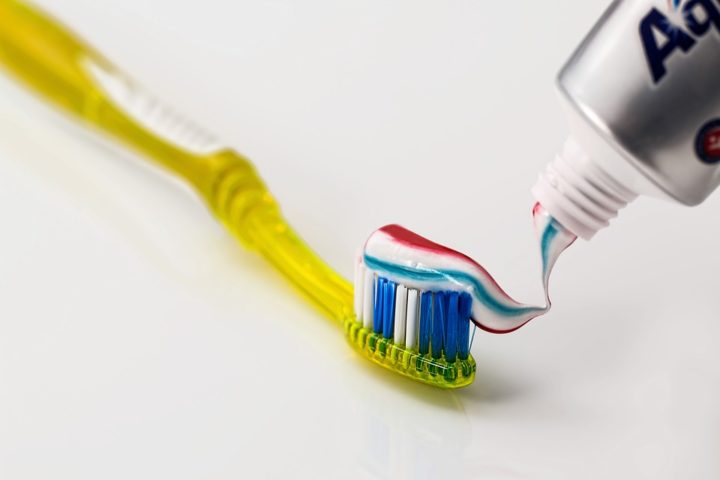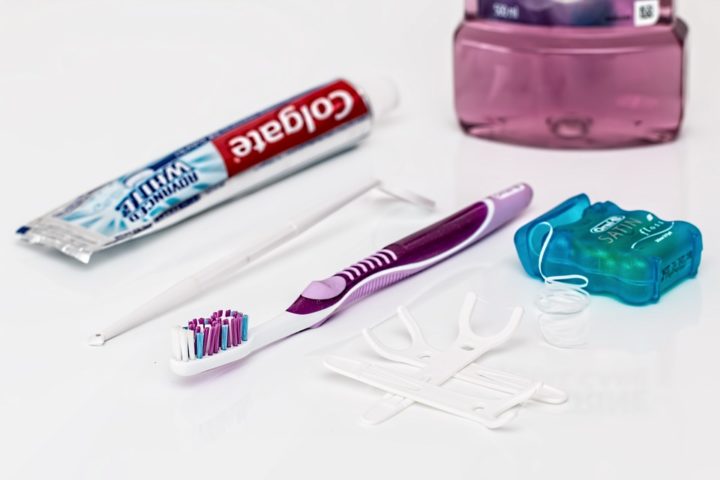So here’s the interesting thing about the current dental program of most adults: typically, our dental habits were developed at an early age, and we maintain those habits throughout our adult lives. But, what if what we learned as a child wasn’t quite right? Or, what if we slacked off during our teenage years and poor dental habits became ingrained in our current daily behaviors? This is why it’s a great idea to refresh your notions of daily dental care and ensure that no tools or good habits are absent. Because when they are, we create the potential for serious issues in the future. Without further delay, here are several tips for daily dental care you should be doing.
Twice A Day
Obviously, you’re brushing daily (we certainly hope you are), but are you brushing twice a day, or are you that person lying on the couch at night who dreads the notion of having to drag themselves to the bathroom to tend to matters of hygiene? Well, you should definitely get off the couch. Why? It’s important to clear away as much food debris as possible. Without this process, you’re inviting the bacteria in your mouth to a buffet featuring all of the leftover food you ate throughout the day. The bacteria in your mouth devour this feast and, as a result, release substances that are damaging to your overall dental health, which lead to the usual suspects: gum disease, cavities, etc.
Tongue In Cheek
Our tongues are the oft-forgotten, red-headed stepchildren of our daily brushing process. After a good night’s sleep, there are infinite bacteria that have been having a rave party on your tongue—glow sticks, thumping dance music, the whole nine. Properly cleaning the surface of your tongue is the equivalent of turning on the lights at that awesome party. Purchase a tongue cleaner and make the tongue scrubbing a permanent feature of your daily dental regimen.
Floss
Now, I know you’ve heard this one, but somehow, many of us still manage to ignore (or avoid) this important piece of wisdom. Flossing is an excellent daily dental habit and a very effective means of removing stubborn plaque from places where your brush is less effective. While brushing twice daily is a must, flossing catches the plaque often left behind, the plaque that over time contributes to gum disease and tooth decay. “But I use a toothpick all the time!” While we applaud your effort and enthusiasm, flossing is still far more effective and a far better daily practice.
Brush Properly
But wait, are you even brushing your teeth properly? Imagine realizing that, as an adult, you’ve been brushing your teeth improperly your entire life! Don’t feel bad; it happens. But how should one brush their teeth?
Use only a pea-sized amount of toothpaste
- Brush your teeth at a 45-degree angle.
- Spend 2-3 minutes brushing your teeth. Time yourself!
- Make sure you’rebrushing the outer, inner, and top surfaces of the teeth.

- Don’t forget the molars in the back. Molars need love too.
http://www.wikihow.com/Brush-Your-Teeth
For those of you who are more visual, of course, there are instructional videos on YouTube:
Eat Properly
Yes, you’ve repeatedly been bombarded with the benefits of a healthy diet, as we all have, and surprise, surprise—those benefits extend to your teeth as well. Daily nutrition plays a key role in great dental care, including a diet rich in veggies, fruits, grains, and legumes. And, of course, you want to limit your intake of sugary foods (cavities!), as the residue from sugar tends to remain in the teeth and inflict acidic damage. Also, try refraining from eating too late. As we sleep, we produce less saliva in our mouths, thus diminishing our mouth’s ability to clean itself throughout the night.
Limit your intake of sodas, coffee, and alcohol—a great idea outside of the discussion of dental health—but high levels of phosphorous in addition to food coloring and high fructose corn syrup can wreak havoc on your pearly whites. Grab a tall glass of water instead. Drinking adequate amounts of water is not only good for your overall health, it’s critical to aiding the creation of saliva, which helps with digestion, fends off tooth decay, and battles against germs. Yes, easier said than done, but your teeth will thank you later.
Go Soft On Them
You, like many, may assume that brushing harder and more frequently (more than twice a day), would be an awesome part of your dental regimen. Well, you’d be wrong. While our teeth are very hard and strong and your efforts to take care of your teeth are to be lauded, excessive and vigorous brushing can have negative consequences: they can lead to sensitive teeth and activate gum recession (leaving sensitive roots exposed), which can promote discomfort and infection.
Excessive and overzealous brushing affects a pretty significant portion of the population, with many causing unnecessary damage as a result. Plaque comes off of your teeth much easier than you think and doesn’t require the use of excessive force. So keep it to twice a day and be gentle.
Use Mouthwash
Did your mom make you use that awful, brown fire water disguised as mouthwash when you were a child? The one that felt like you were gargling rubbing alcohol? If you’re like me, you were traumatized as a child, and you may have shied away from the practice of using mouthwash. Well, I would recommend that you tuck those horrible memories away and bring back the mouthwash.
While I won’t say that using mouthwash is an absolute necessity, the benefits of a daily dental regimen that includes brushing and flossing are real. Adding mouthwash into the mix turns a good daily dental regimen into a great one. Also, if you have specific dental issues—gingivitis or dry mouth, for example—talk to your dentist about therapeutic rinses, which can be prescribed to target and aid your specific oral issue.
Storage Is Important
After a vigorous brush, are you laying your toothbrush down on its side, allowing bacteria to grow and fester between the bristles? Do you run water over brush for a mere second or two before grabbing your coffee and hurling yourself out of the door and off to work? Hmm. Not good. Make sure that you’re taking good care of your dental equipment in addition to taking care of your teeth. Rest your toothbrush upright so that it can properly dry out, which helps avoid mold growth. And rinse your toothbrush properly to clean out all of the bacteria you just scrubbed out of your mouth.
Unbeknownst to many, the health of our teeth plays such an important role in our overall health. Dental issues can lead to a host of problems, including heart disease and massive infections. In other words, it’s absolutely worth your time to invest in creating a daily system for taking great care of your pearly whites. If you do the work and serve your teeth, they’ll serve you back. Employ each of the practices you’ve read above and make sure everyone in your household is doing the same.
And of course, twice a year, you should be stopping by the dentist for annual checkups and cleaning. Our team would be honored to become your partner in helping you maintain your beautiful smile and supporting optimal dental health.



